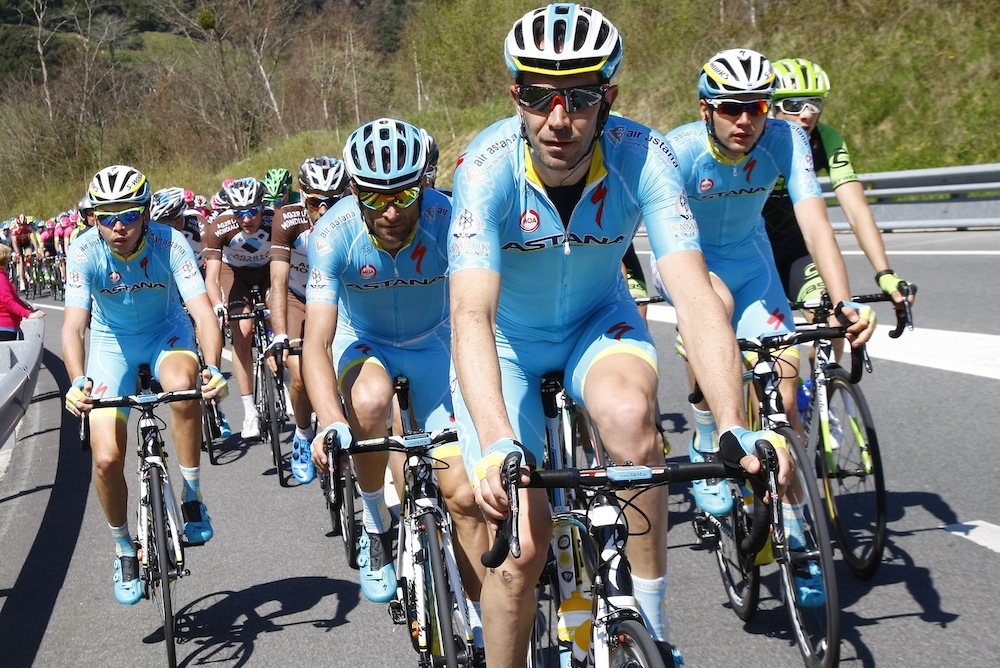This is why Astana have been awarded a 2016 WorldTour licence
The UCI's Licence Commission releases its reasoned decision into why they have granted Astana's WorldTour licence for 2016


Astana on stage one of the 2015 Tour of the Basque Country
The latest race content, interviews, features, reviews and expert buying guides, direct to your inbox!
You are now subscribed
Your newsletter sign-up was successful
Astana will race in the 2016 WorldTour after the receiving the go-ahead today from the UCI.
The green light came after a four-month review of the Kazakh team, with cycling's governing body having previously asked its commission to withdraw Astana's licence after doping cases and a noted "old-style culture."
Following Nibali's 2014 Tour de France victory, Astana suffered five doping cases with two from its top level team.
The team squeezed into the 2015 WorldTour, receiving one of the coveted licences, but remained under the commission's spotlight while an investigation progressed. Instead of being booted, the team with the most chequered past in cycling was also given the thumbs-up for 2016.
The Institute of Sport Sciences of the University of Lausanne (ISSUL) carried out the study that led to the decision. "After reading the conclusions of ISSUL’s report," read a UCI press release, "the [licence] commission has found that the team complied with the measures required of it."
The Lausanne institute found that "failings in this organisational approach" had been corrected, and released a reasoned decision published today.
"The coaching team had insufficient resources, that the organisation of team staff was on the whole deficient, that there was an excessively pervasive race management with the consequence of an overly vague definition of the competences of various team members and that checks on riders who were far away were very weak and often conducted in Russian," part of the decision read.
The latest race content, interviews, features, reviews and expert buying guides, direct to your inbox!
It noted positive points, however, including "the professionalism of individuals, coaches and doctors in particular."
The institute released a report in June and one in September. It showed Astana's willingness to overcome its "'old-style culture' with over-influential leaders."
Which Astana rider makes it into our top 10?
>>> Astana has ‘paid the price’ for scandals
The team began to utilise a computerised communication tool linking riders, trainers and managers, and promised to hire two more Russian-speaking staff members for 2016.
The idea is that Astana would have a structure that "would allow it to avoid, as far as possible, the doping cases that had affected the team in the 2014 season."
The commission said that over the year, communication between sports directors and other members improved and that the team would need time to adopt its computerised tool fully.
"The situation can be considered as very significantly improved compared with that revealed by the audit report in December 2014, in terms of the training plans for riders, the team staff, race management and medical care," the decision read. "To this can be added the creation of an information technology platform that has the objective of improving communication between the various components of the team."
>>> Cookson: I believe Astana are trying to do their best to comply with the rules
One team member's name was blacked out in the published decision, but the commission said that the person in question "had agreed to review his position in the manner recommended by the expert consultants."
Gregor Brown is an experienced cycling journalist, based in Florence, Italy. He has covered races all over the world for over a decade - following the Giro, Tour de France, and every major race since 2006. His love of cycling began with freestyle and BMX, before the 1998 Tour de France led him to a deep appreciation of the road racing season.
